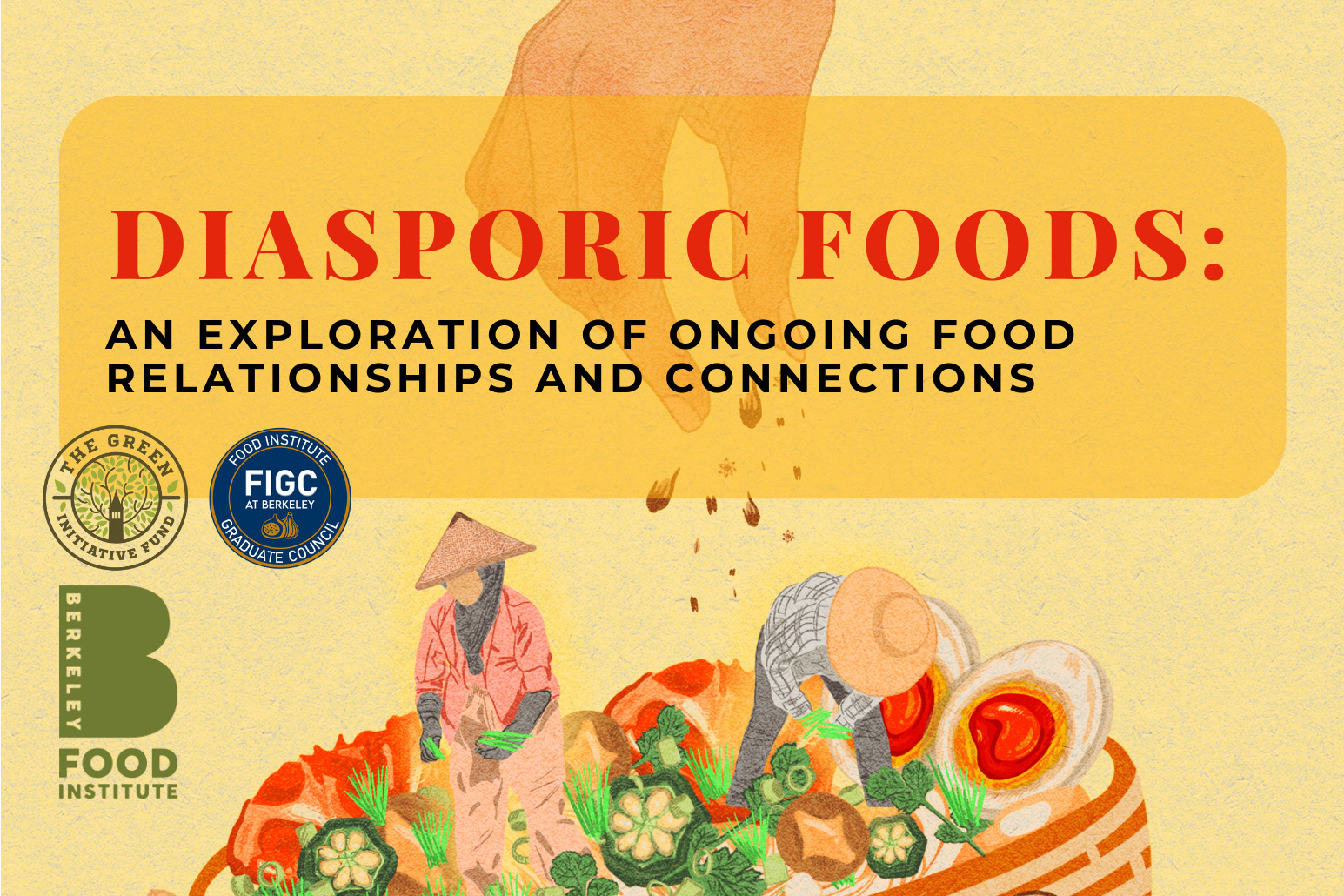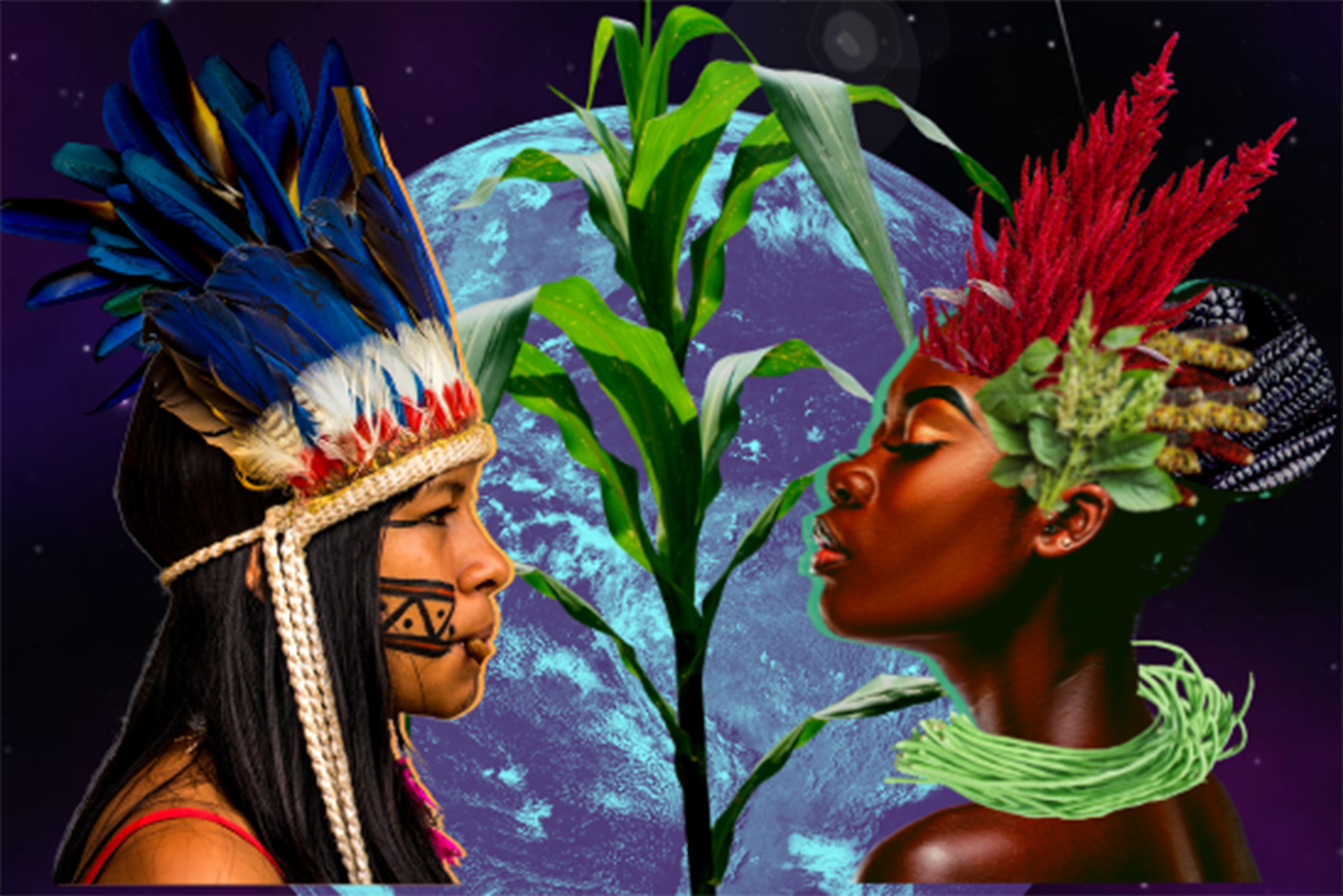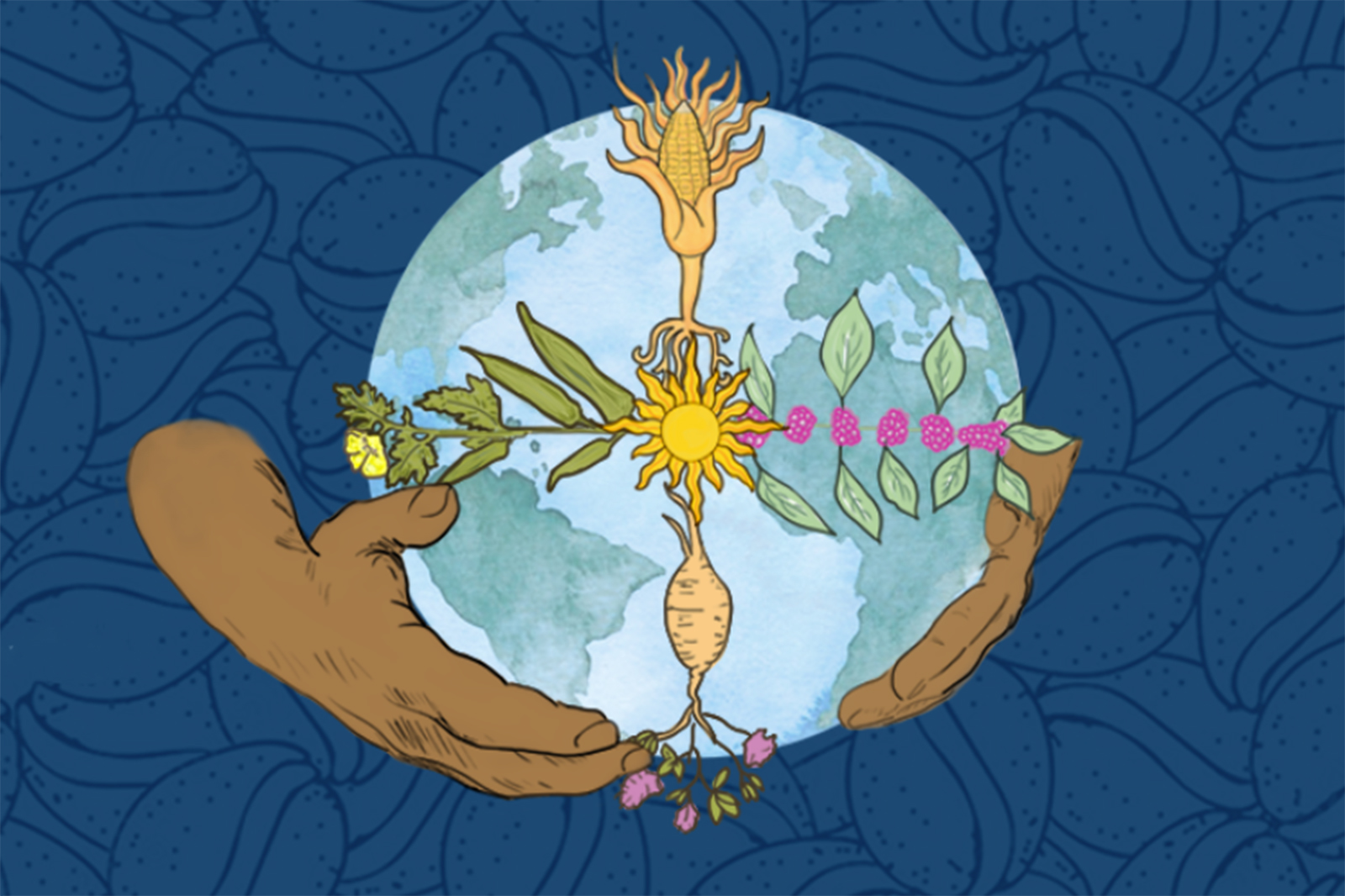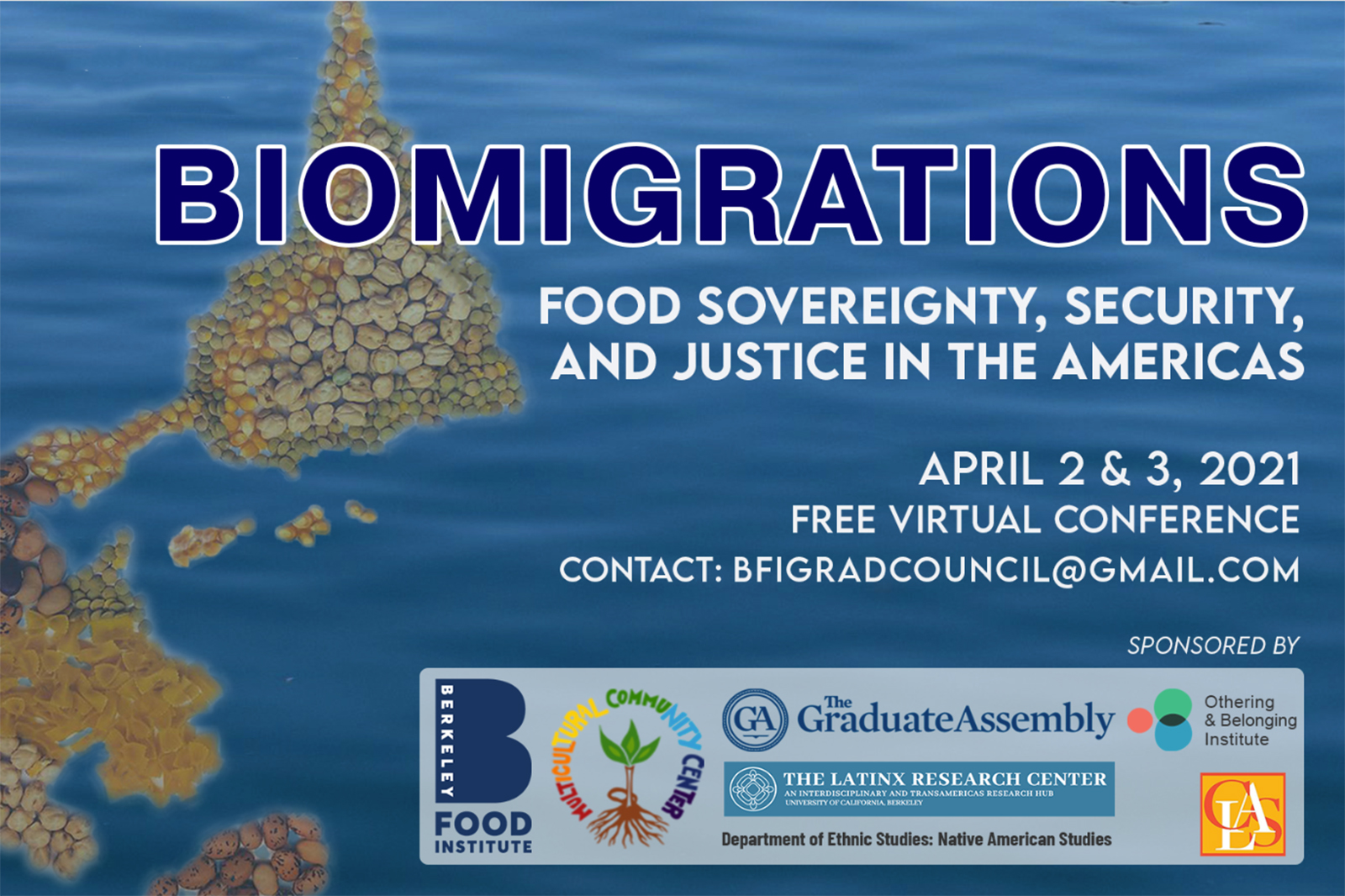Diaspora refers to the dispersion of a group of people from their homelands. Traditional food cultivation, preparation, and consumption can be strong sources of connection and grounding to both ancestral and current lands of diasporic peoples. The migrations of ideas and practices due to diasporic events has impacted the food system across the globe. The objective of the conference is to connect scholars, community members, educators, artists, practitioners, and policy makers through narratives and discussions of the histories, existence, impacts, and futures of diasporic events and communities through the lens of food.
For Students
Food Institute Graduate Council
 The Food Institute Graduate Council (FIGC) at Berkeley is a cross-disciplinary hub for Berkeley masters and doctoral students interested in food systems issues. FIGC helps inform BFI’s work by giving vital guidance on UC Berkeley’s student-related food systems programs. FIGC also organizes an annual Food Systems Conference, cosponsored by BFI. During the semester, FIGC hosts a running lunch and speaker series with guest professors, cooking project workshops in the Berkeley Teaching Kitchen, farm volunteer days, monthly membership meetings, and much more.
The Food Institute Graduate Council (FIGC) at Berkeley is a cross-disciplinary hub for Berkeley masters and doctoral students interested in food systems issues. FIGC helps inform BFI’s work by giving vital guidance on UC Berkeley’s student-related food systems programs. FIGC also organizes an annual Food Systems Conference, cosponsored by BFI. During the semester, FIGC hosts a running lunch and speaker series with guest professors, cooking project workshops in the Berkeley Teaching Kitchen, farm volunteer days, monthly membership meetings, and much more.
If you would like to sign up for the FIGC Listserv to get involved, please fill out this form. You can also email contact@figc.berkeley.edu with any questions.
The current FIGC chair is Kristida Chhour, who can be contacted at kristida@berkeley.edu.
FIGC Conferences

Diasporic Foods: An exploration of ongoing food relationships and connections (2024)

Food Futures: Ancestral and Contemporary Methods for Transforming Food Systems (2023)
The term “Food Futures” emphasizes the relational and material possibilities of food in a climate changing world. Thus, the Food Futures conference focused on alternative methods to understand food. Discussions looked beyond industrial agricultural practices to inspire change in food systems across all global directions. A few topics that align with the theme of food futures include Indigenous and Black futurities, agroecology, and value-based commodity chains.

Food Relatives: Decolonizing and Indigenizing the Global Food System (2022)
The term “Food Relatives” signals to the alternative and Indigenous food systems that view food as more than a commodity. As a generative category and notion, Food Relatives gives insight into how various actors can decolonize and indigenize their respective food systems by attuning to the more-than-human as part of economic, social, and political lives. The conference connected scholars, community members, artists, and policymakers through varying critiques and discussions of three major systems of oppression in the global Food System: colonization, heteropatriarchy, and capitalism.

Biomigrations: Food Sovereignty, Security, and Justice in the Americas (2021)
“Biomigrations” is a way to reconsider notions of Life and Movement. It is a way to explore one’s community, self, and spirit(s) through violence, refusal, and Indigenous rooting. In other words, Biomigrations is premised on the idea that humans need to know how we are enacting structural pain(s) to humans and non-humans through our Being (violence), how we have arrived at such becoming (refusal), and where we have come from (Indigenous rooting). The conference connected American scholars, community members, and artists through the lenses of Food Sovereignty, Food Security, and Food Justice, while giving specific focus on Indigenous and Black knowledge, people, and lands.